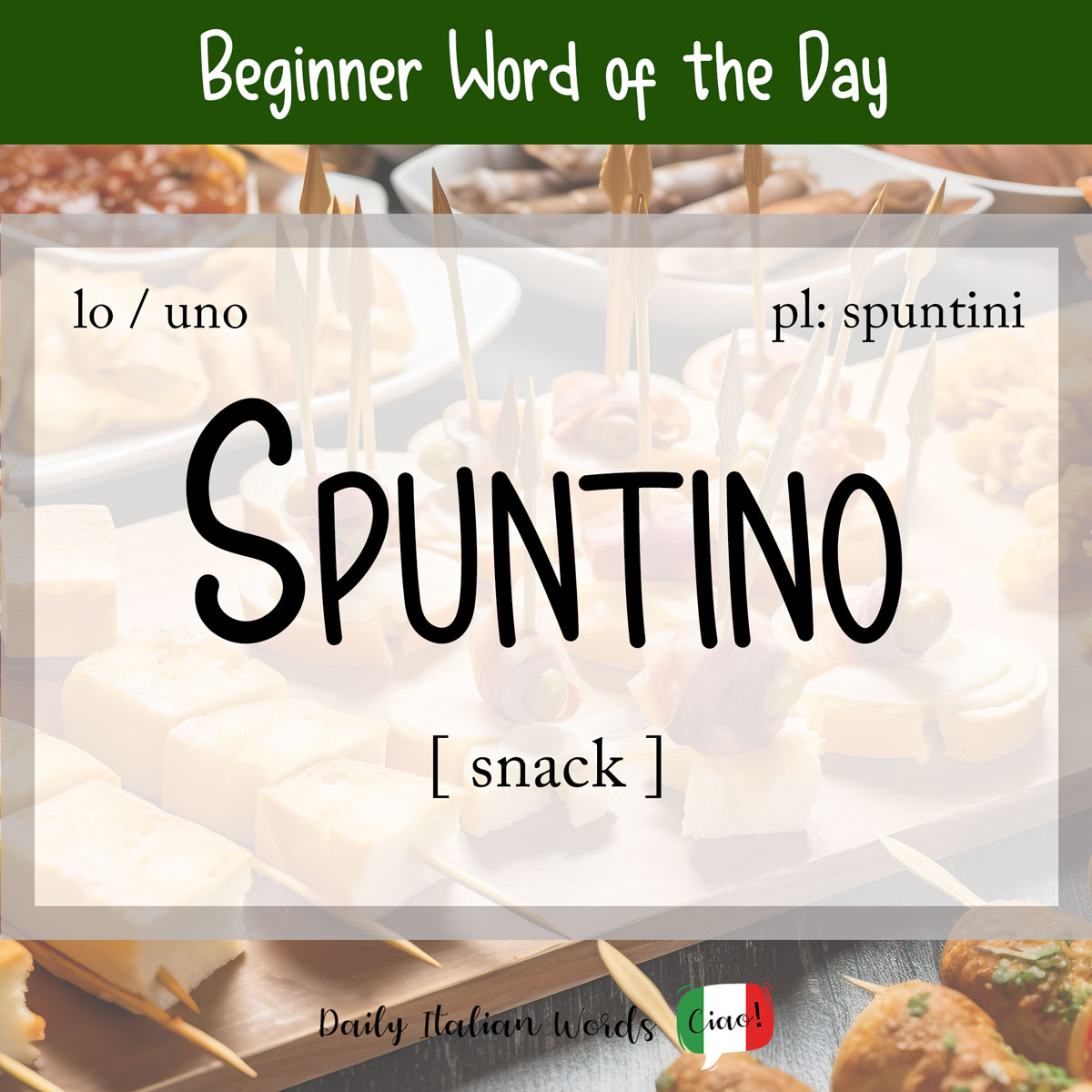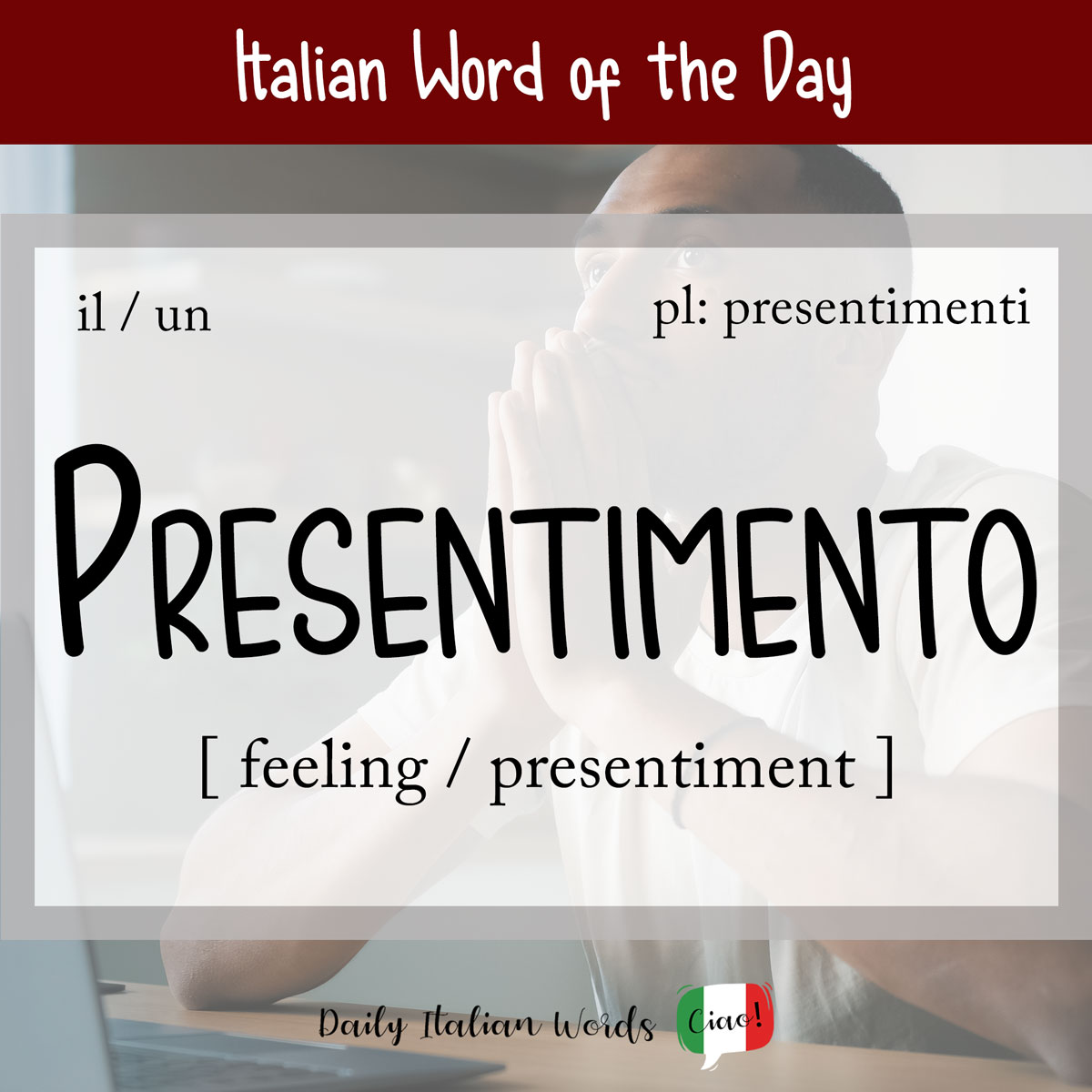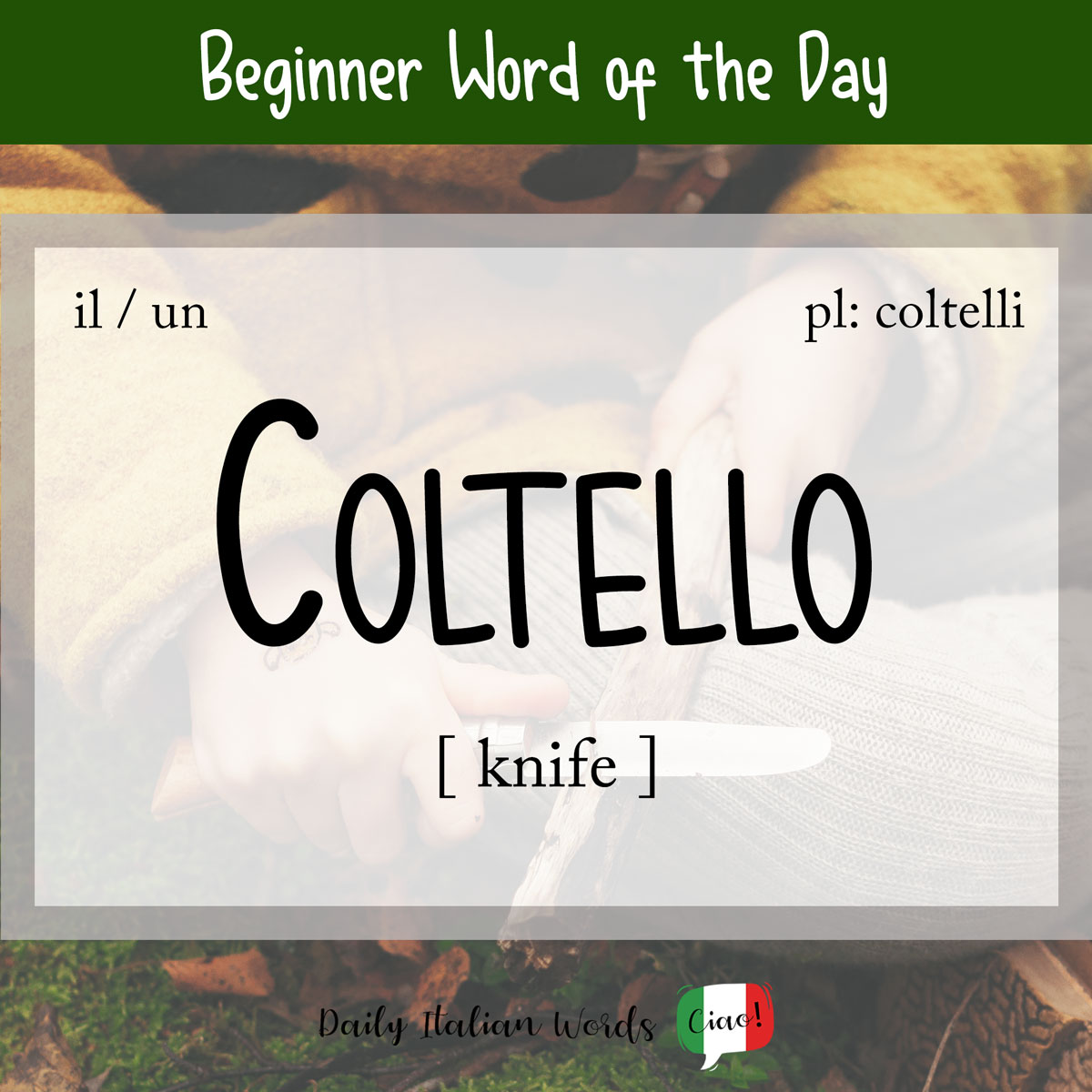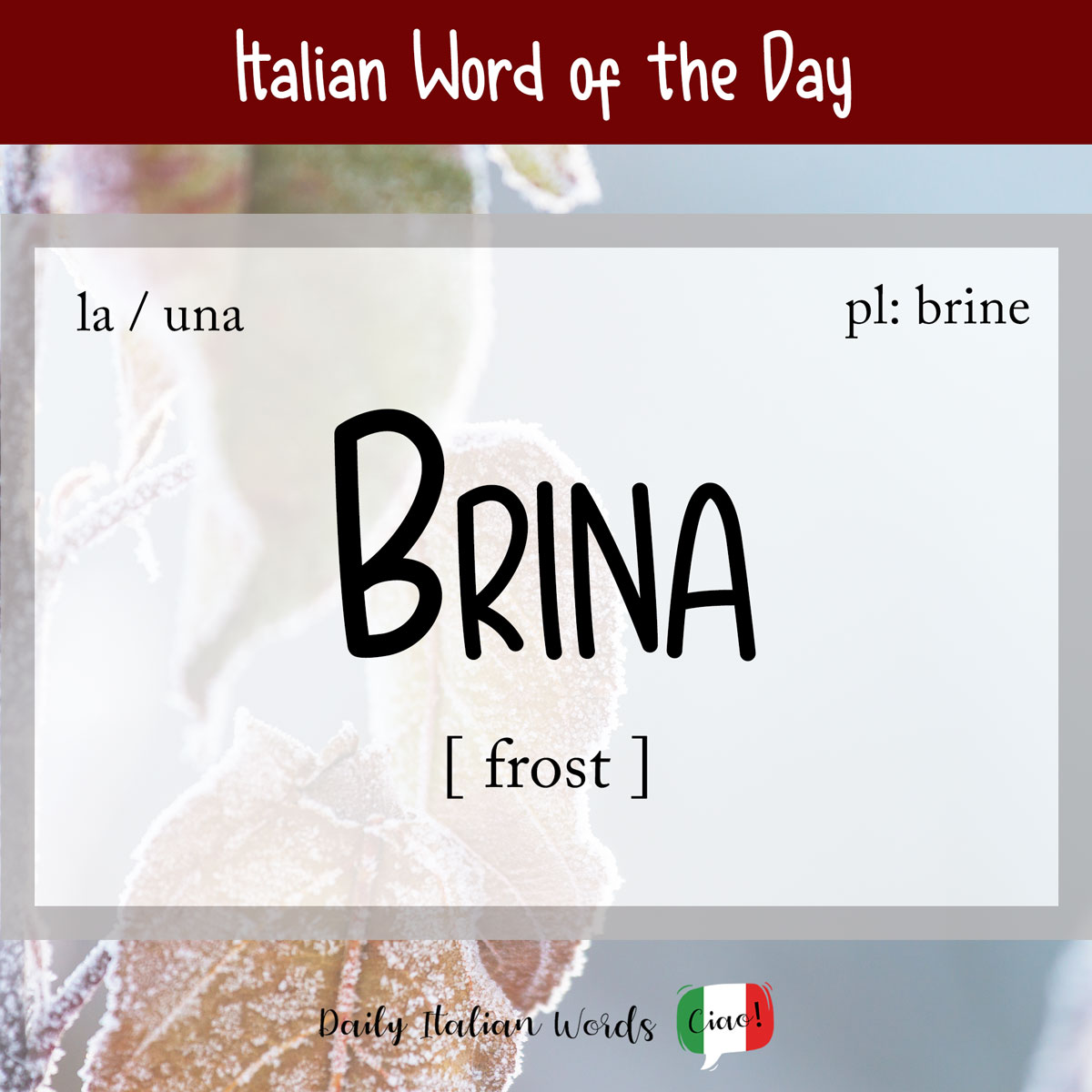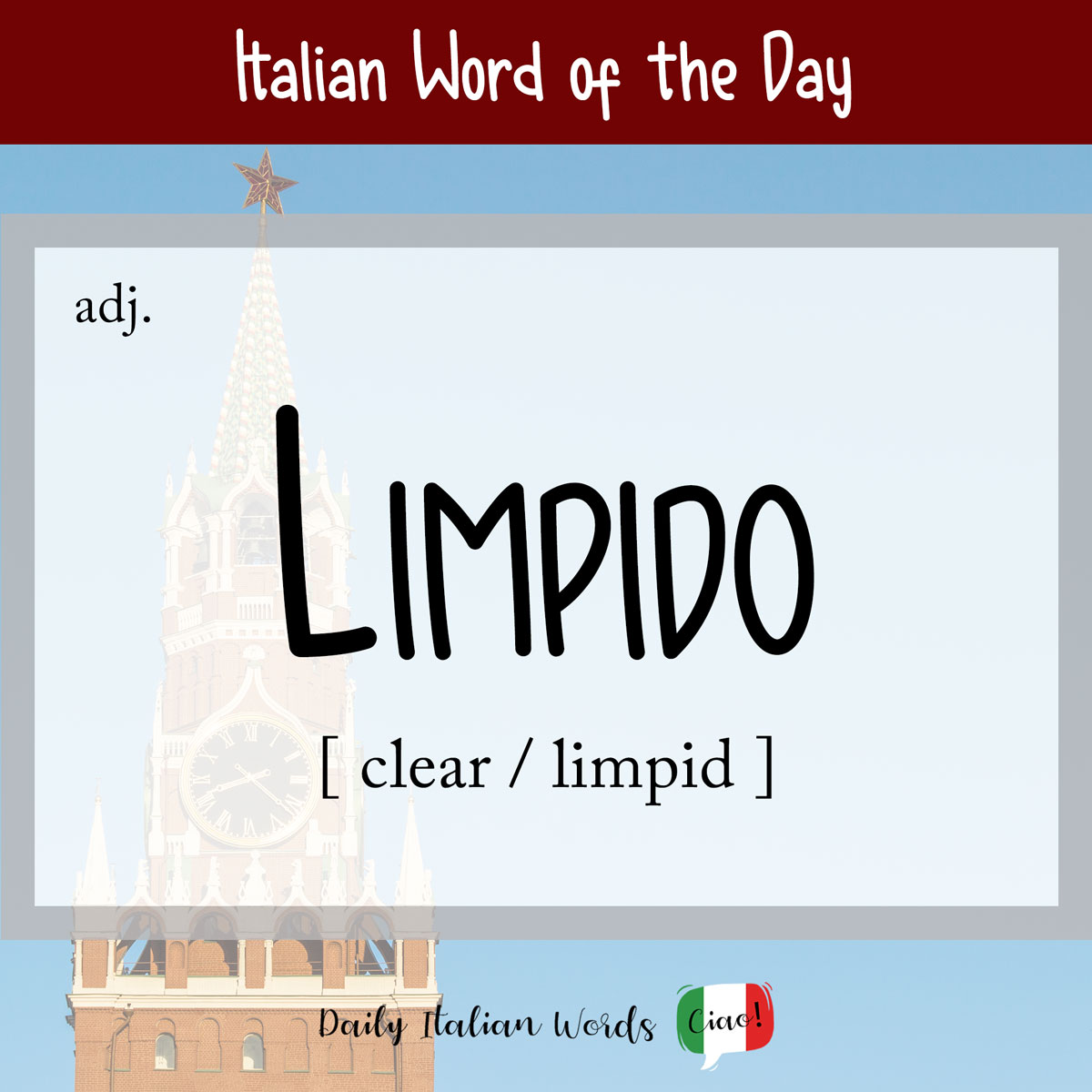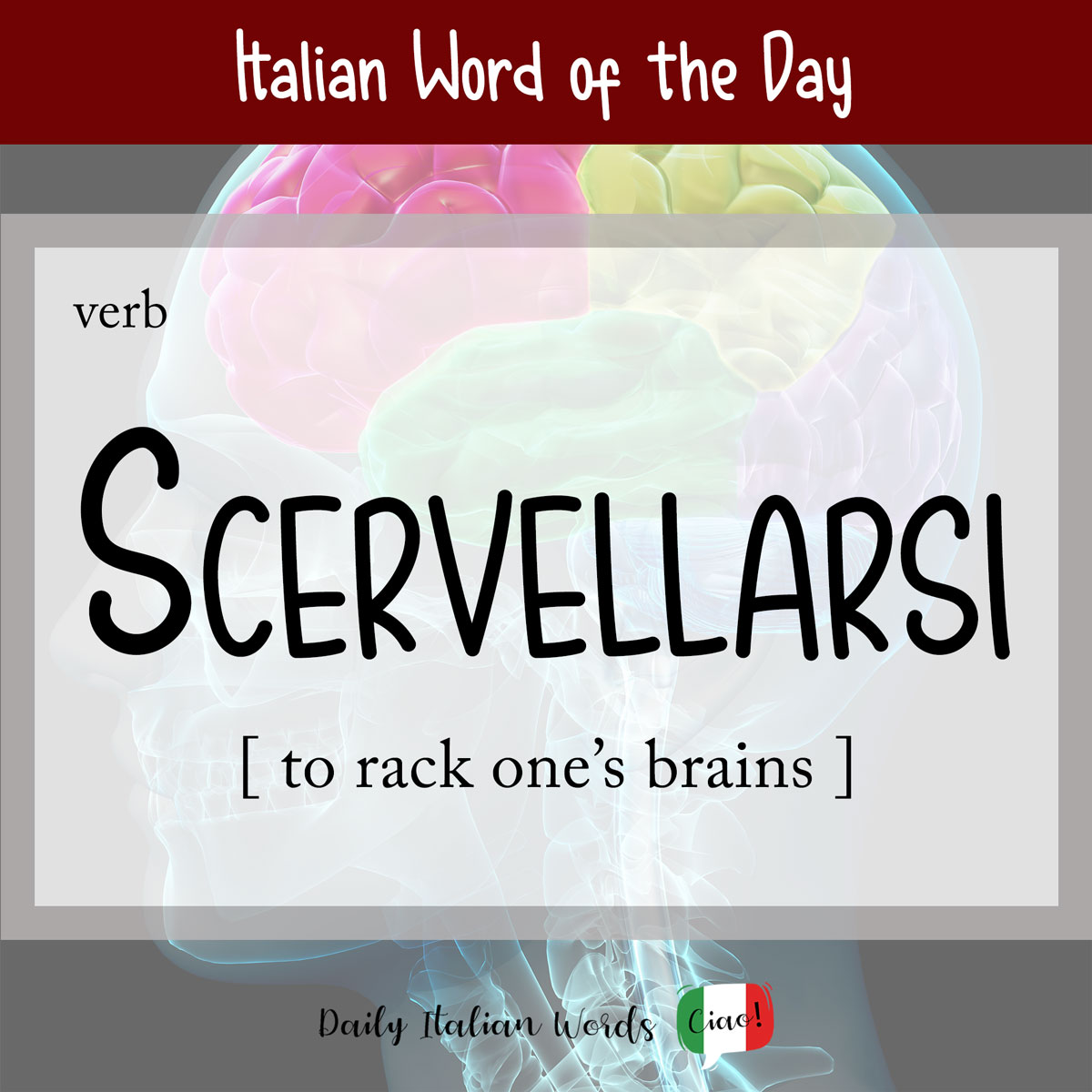Italian Word of the Day: Spuntino (snack / bite to eat)
A spuntino in Italian can be defined as a quick, light snack eaten either between main meals or in place of one of them. According to Treccani, its etymology is unknown, whereas Il Devoto–Oli maintains that it derives from the word spunto. Spuntino is a masculine noun, and the plural is spuntini. lo spuntinouno spuntino …

